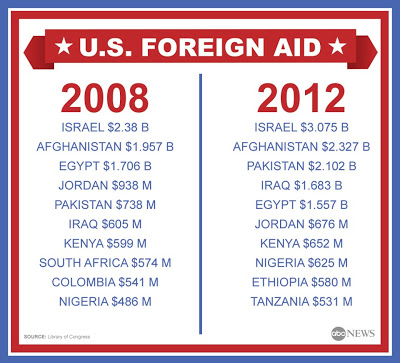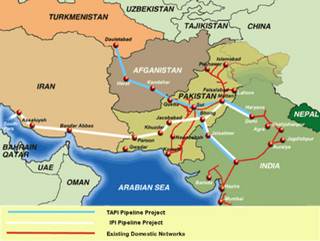Pakistan-US Ties after Obama's Re-election
By Riaz Haq
CA
Polls indicated that Mitt Romney would have been elected US president on Nov 6, 2012 if Israelis and Pakistanis had their way. Most foreign policy analysts, however, believed that such an outcome would not have resulted in any fundamental US policy shift for the two disgruntled nations.
Why Romney?
To understand why Pakistanis expressed a preference for Romney over President Barrack Obama, let us review some of the ostensible reasons for it:
1. Most Pakistanis hoped that Romney would stop CIA-operated drone attacks in FATA. The fact is that Romney, in response to a question during the presidential debate on foreign policy, had said: “I believe we should use any and all means necessary to take out people who pose a threat to us and our friends around the world. And it’s widely reported that drones are being used in drone strikes, and I support that and entirely.”
2. There is a common perception among Pakistanis that Republicans in the White House are better for them. This perception is based on the Cold War-era policies that brought significant US aid to Pakistan during early 1960s under President Dwight D. Eisenhower, and the 1980s under President Ronald Reagan and 2000s under President George W. Bush.

This perception is not valid now because President Obama, a Democrat, has tripled US aid to Pakistan from $738 million in 2008 to $2.108 billion in 2012.
US Troops withdrawal:
Now that President Obama has been re-elected, it is almost certain that the US will withdraw most of its troops by 2014 as planned.
Beyond 2014, all the signs indicate that the US will continue to be engaged militarily, economically and diplomatically in the region. Part of the motivation will be to try and deal with potential threats to the American homeland from possible resurgence of Al Qaeda and its affiliates in Afghanistan and Pakistan. But the other part is the more ambitious effort to maintain US economic and diplomatic power and influence in Asia.
The US military involvement will be mostly in the form of drones and special operations. It is quite possible that the Americans may increase the frequency and intensity of CIA-operated drone attacks and joint special operations (JSOC).
New Great Game:
On the diplomatic front, the US will maintain close ties with Pakistan's political, military and intelligence establishment regardless of who holds power after the upcoming elections in 2013 . Rhetoric on either side may change from time to time but the US aid flow and Pakistani cooperation will not. As Romney said and Obama seemed to agree during the foreign policy debate “it’s not time to divorce a nation on Earth that has 100 nuclear weapons and is on the way to double that at some point."
In addition to the continuing US pressure to act in FATA, Pakistan is also being pressed by its other friend China to crack down on the Taliban because the Chinese also feel threatened by the Pakistan-based Taliban militants for their alleged support and sheltering of Chinese Uighur Muslim militants who are waging war against the Chinese government in Xinjiang province.
On the economic front, both China and the United States have significant long-term interests in Pakistan, as does Russia, because of its strategic location as a transit country. Some see the growing US-China competition in Central Asia as the start of a New Great Game for power and influence in the Asian continent. This game will present Pakistan with its greatest challenge and the greatest opportunity in the 21st century.
The Chinese see the value of access to the Arabian Sea as the shortest route for trade in and out of Western China to develop and stabilize its restive Xinijiang province. A number of Chinese companies are working on building roads such as the Karakoram Highway and other infrastructure for this purpose.

US Pivot to Asia:
Re-elected President Obama is making his first major foreign trip to ASEAN summit in Cambodia. As part of President Obama's "pivot to Asia" to check China's rise, the Americans have a strong competing interest in creating a new silk route in Asia that bypasses China. The Americans envision such a route extending from resource-rich Stans in Central Asia to resource-hungry South Asia and Southeast Asia region via Afghanistan, Pakistan and India. The expected energy flow for energy-hungry Pakistan and the potential annual transit fees worth billions of dollars from this trade route are part of the US-sponsored incentives for Pakistan to help stabilize the situation in Afghanistan. The first example of this effort is the American push for TAPI -- Turkmenistan-Afghanistan-Pakistan-India - gas pipeline.
Summary:
There are two important messages for Islamabad coming from Washington and Beijing: 1)Both US and China have a common interest in defeating the militants operating from Pakistan's FATA region even as the two great powers compete in a high-stakes game to dominate Asia. 2) Obama will follow through on his plans to withdraw ground troops from Afghanistan by 2014 but still continue to be engaged there for a variety of short-term and long-term goals in Central and South Asia and the larger Asian continent.
Here's the link to a recent video discussion on the subject in which I participated.
----------------------------------------------------------------------

